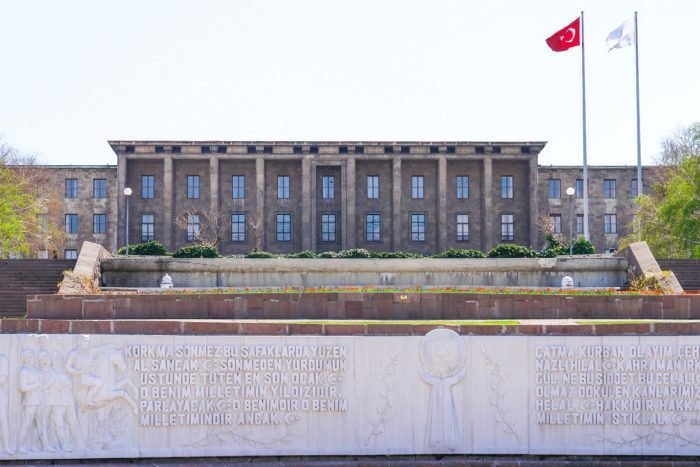The Turkish parliament’s executive board on the first day of the new legislative year voted to forbid former employees of parliament who were dismissed from their jobs after January 1, 2015 from entering the parliament premises.
The regulation was proposed as part of changes to parliament’s security measures and was adopted with a majority of votes. According to the new regulation former employees who were dismissed from their jobs after January 1, 2015 will not be able to enter the parliament premises. The regulation includes people who were fired during a state of emergency that took effect after a July 2016 coup attempt.
Following the abortive putsch, the Turkish government declared a state of emergency and carried out a massive purge of state institutions, summarily dismissing over 150,000 civil servants including academics, teachers, military personnel, diplomats and police officers with emergency decree-laws subject to neither judicial nor parliamentary scrutiny.
Several opposition members of parliament argued that the regulation contravened the constitution. Ömer Faruk Gergerlioğlu, a prominent human rights activist and pro-Kurdish Peoples’ Democratic Party (HDP) deputy, said it was a disgrace and a genocidal action. “They [the proponents of the regulation] are stomping on the constitution! What public building will these people be barred from entering next?”
KHK'lıların TBMM'ye girişi yasaklanmış. Nazi pratiğini taşıdıkları bir diğer aşama burası. Hala anlaşılamadı:
KHK ile insanları istedikleri gibi kamu görevinden ihraç etme gücünü edinmediler sadece, kimin yurttaş olup olmayacağına karar verme gücünü edindiler. Bu güç bir toplumu https://t.co/BEqduoh86C— Cenk Yiğiter (@cenkyigiter) October 8, 2020
According to Cenk Yiğiter, an academic summarily dismissed from his position at Ankara University, the new regulation is a “Nazi-type practice” designed to strengthen the government’s power in deciding who is a citizen and who is not. “If this power does not disturb society, then society is an accomplice to this crime. Even the Nazis acquired power gradually; the extermination camps were not constructed in one day,” Yiğiter said.
Bahadır Kurbanoğlu, from the Gelecek Partisi (Future Party), said the government was branding and stigmatizing dissidents with the new regulation. He added that this was an embarrassment for the parliament and violated several universal norms of human rights.
The Justice for Victims Platform and Gergerlioğlu released a joint report in July which said that the two-year-long state of emergency declared after the coup in Turkey caused immense suffering among civil servants who were dismissed from their jobs by the government as well as their families.
“The decree-law victims not only were removed from their jobs but also barred from seeking employment in the private sector and denied access to social security benefits,” said Gergerlioğlu.
The dismissed civil servants lost 70 percent of their average monthly income, a circumstance that reduced them to dire financial straits, according to a survey conducted for the joint report.
The survey indicates that 99.1 percent of the victims are college or university graduates or holders of master’s or doctoral degrees, which means an immense loss of human resources for Turkey’s public administration.
According to the victims’ family members taking part in the survey, the biggest problem they have been facing is economic hardship (97.9 percent) followed by psychological problems (88.6 percent), loss of social prestige and social exclusion (83.7 percent), disintegration of social circles (83.1 percent), unemployment/lack of employment (80.4 percent) and lack of social security (73.2 percent), respectively.















